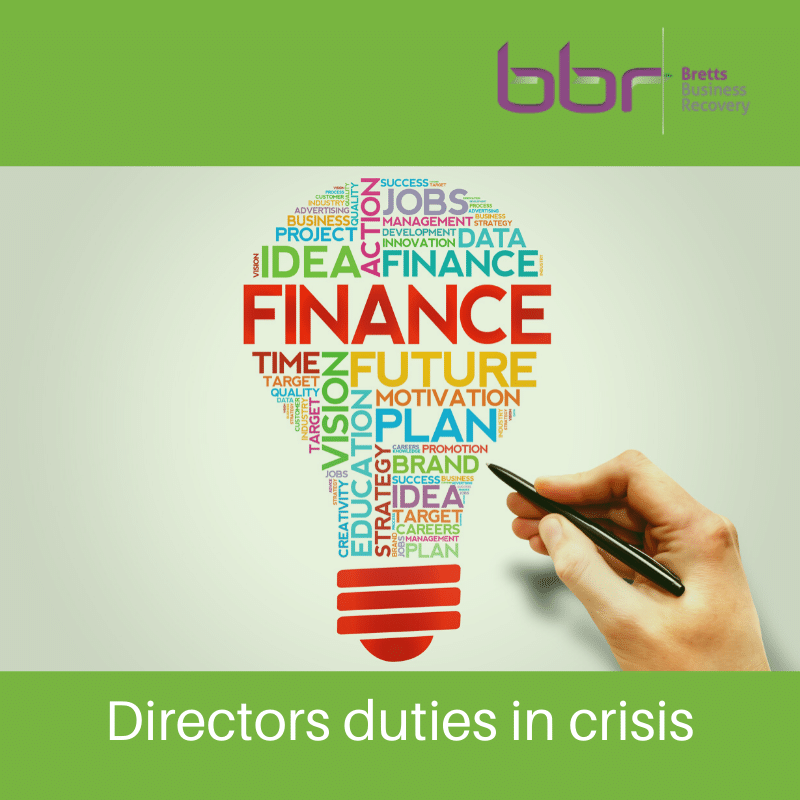Key legal and fiduciary duties for directors during the COVID-19 crisis

As part of the new measures to support business continuity through the COVID-19 crisis, the Government has temporarily suspended wrongful trading laws for company directors and proposes to introduce other emergency insolvency legislation to aid business at this time.
This is a rational move, recognising that directors of business across most sectors must focus on what they can do to survive in the new world regime. And rightly so; company directors have their hands full concentrating on their operations, cashflow, customers and people. Some have had to adapt their entire business model and are dealing with people issues that they could never have imagined having to consider, just to ensure their company lasts through the crisis.
Nonetheless, it’s precisely at these times when directors may slip up. Directors have legal and fiduciary obligations to the company and its creditors, particularly whilst they may be trading whilst insolvent. Insolvency may be defined in two ways: not meeting your liabilities as they fall due and liabilities outweighing assets.
In the circumstances, we feel that this is an opportune time to remind you of the most basic requirements.
As a responsible director, even in these unprecedented times, you are expected to:
- Take professional advice – from an insolvency practitioner, your accountant or, possibly, your solicitor
- Have a business plan, even if it changes daily
- Ensure that you have management information on debtors, creditors, balance at bank
- Monitor your cashflow daily/weekly to ensure financial position is not worsened
- Avoid taking additional credit from suppliers.
- If deposits are taken, they should be ring-fenced and put into a separate bank account
- Take positive action to mitigate the consequences for creditors
- Ensure that you can justify any expenditure in that it will ultimately benefit the creditors
- Keep contemporaneous notes of all relevant decisions and reasons for making those decisions
- Have regular board meetings and minute your decisions.
- You do not delay formal insolvency proceedings if, ultimately, there is no avoiding it.
And finally, should you resign? Absolutely not.
As insolvency practitioners, in the case of Liquidation and Administration, we are obliged to submit a report to the Secretary of State on the conduct of the Company directors. This includes all directors in the three years proceeding liquidation or administration. If you resign in that period it is more likely to have a negative effect than if you stay and take the correct action, as your legal and fiduciary duties dictate. A negative report may lead to director disqualification proceedings being brought.
For advice, contact us.